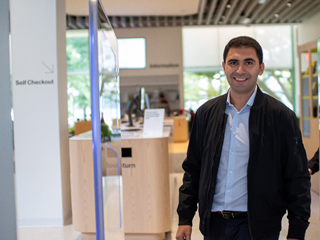Alumni Testimonials
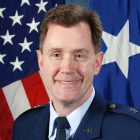
Andy Armacost
Andy Armacost
Basic background information on yourself, perhaps where you came from, former education, etc.
I grew up in a Coast Guard family, eventually settling in Milwaukee, Wisconsin. My father had his PhD in Operations Research and was instrumental in helping me decide upon my college major. I attended Northwestern University, studying Industrial Engineering, working on my thesis with Professor Sanjay Mehrotra, and graduating in 1989. As an ROTC student, I was commissioned into the Air Force upon graduation and served as an Operations Research analyst at Hanscom AFB, near Lexington, Massachusetts. I was selected for faculty duty as an instructor at the Air Force Academy in Colorado Springs, Colorado, with a preceding sponsorship for graduate school at MIT and the OR Center.
What degree you received from MIT and when?
I received an S.M. in Operations Research in 1995. I joined the faculty at the Academy for two years, then returned to the OR Center in 1997, completing a PhD in Operations Research in 2000.
Who your advisor was at MIT?
Professor (now Chancellor) Cindy Barnhart for both my Masters and PhD. My Masters thesis was co-advised by Dr. Steve Kolitz from Draper Lab.
What was the research you performed while at MIT?
At the Masters level, I worked in the area of rail transportation, examining ways to optimize the scheduling and sequencing of activities in railroad yards and across a rail transportation network. In my PhD, I studied the air networks for overnight package shipping. This work was sponsored by UPS, and my research was looking at alternative formulations and algorithmic approaches to determine aircraft routing and fleet assignments. This was an extremely large network design problem.
Where are you currently working?
I have served in a variety of positions at the Air Force Academy, including as a professor, department head, and now as the Dean of the Faculty (Chief Academic Officer). The Air Force Academy is an undergraduate academic program with 4,000 students and 535 faculty members.
What have you been doing since your OR degree?
In addition to serving in an educational role at the Academy, I have consulted with components of the Air Force on a range of projects involving personnel planning, aircraft routing, and strategic budgeting. I also served as the chief analyst at Air Force Space Command, which operates all the Air Force’s satellite systems and cyber systems.
Advice/guidance to students coming to the ORC – why the ORC from your perspective?
What struck me was the closeness of the community in the ORC. I had heard of many cutthroat PhD programs, and the ORC was such an incredible collection of professors and students who supported each other. In fact, when I run into old ORC friends and professors at conferences, I’m always amazed at how, after years of not seeing each other, we just fall back into our old relationships.
How did the ORC contribute to your development as a scientist and as a person?
This was an all-star academic team. I have to be frank: I was completely intimidated at first given the amazing accomplishments of my fellow students and the reputation of the professors. But you quickly realize that everyone is there to learn and to grow. The professors modeled what it means to be scholars, and the students worked so well together, playing off each other’s strengths. We all grew into better thinkers and problem solvers as a result. I found that this translated to how I thought about life and contributing to society. The ORC, bringing so many backgrounds across the world, taught me about other cultures and viewpoints that shaped me for the rest of my life.
What is one memory about the ORC you carried with you?
All the wonderful people – from students to staff to faculty!
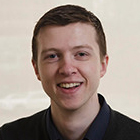
Lennart Baardman
Lennart Baardman
I was born and raised in the Netherlands where I also completed my Bachelor of Science in Econometrics and Operations Research at the University of Groningen. Next, I studied in the United Kingdom for a Master of Advanced Study in Mathematics from the University of Cambridge. Afterwards, I came to the United States to study for my PhD at the MIT Operations Research Center.
My advisor at MIT was Professor Georgia Perakis. Together, we worked on collaborations with numerous firms in the retail, manufacturing, and online industries. The focus was to use analytics to create novel, fast, and near-optimal algorithms to solve operational challenges faced by these firms. Many of these problems dealt with improving forecasting, pricing, promotions, and advertising. To do this, we had to use a variety of analytics techniques including mathematical modeling, optimization, statistics, and machine learning. This year (2019), I have graduated and received my PhD in Operations Research with a specialization in Operations Management.
My next step is to join the Technology and Operations Area of the Ross School of Business at the University of Michigan. There, I will be conducting research and teaching students, which I both love to do. I am very excited for this opportunity and I am very thankful to the MIT Operations Research Center for granting me the possibility to follow this path.
Personally, my time at the Operations Research Center has been a tremendous experience. Anyone that wants to study Operations Research, or surrounding fields of study, I would advise to come to the Operations Research Center. The number of advantages that it has to offer is hard to count, but two distinct points make it a unique and wonderful place. First and foremost, I would say that the student community is amazing. Everyone is incredibly friendly, collaborative, and willing to help. You will not lack support from your fellow students, be it with your research or the classes that you take together. Secondly, I would argue in favor of the faculty’s strengths. Their mentoring and guidance lead students to the right problems, which has resulted in incredibly strong research. You will not have any difficulty finding the right advisor, both with finding the right research problems as well as your future academic career. Altogether, I believe that the Operations Research Center is the best place to spend your time as a doctoral student and prepare you for your future career.
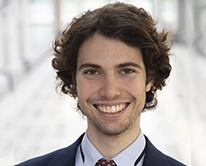
Léonard Boussioux
Léonard Boussioux
When I first arrived in Cambridge and MIT, I loved how easy it was to make new friends and connections. Every day was an exciting adventure to discover all the fantastic opportunities on campus. I was thrilled to feel MIT people’s passion for research, engineering and taking actions. I found a dedicated community which is eager to do impactful projects and change the world positively. Moreover, the diversity of the people I met was blissful. I made friends with whom I play soccer and squash, go to the Boston Symphony Orchestra, birdwatch, enjoy a Boston afternoon walk, go on weekend trips, cook, read and many other activities!
I first lived in a graduate residence on campus. I loved my life there: very easy to meet new people, wonderful roommates, many events organized, including coffee hours, weekly brunches, night parties, Celtics or Red Sox trips, apple picking,... I then moved to Boston during the pandemic and enjoyed the experience as much, although differently. As a nature lover and bird watcher, I particularly appreciated the proximity to many parks and wild areas accessible by less than 20 minutes of bike. I find Boston one of my favorite cities in the US, if not the most. The incredible college student body around makes it even more exceptional; you feel the friendly and energetic spirit all around.
On top of this, being a student at the Operations Research Center is a fantastic chance. We are a warm family, helping each other and often collaborating actively and sharing our knowledge. I was initially admitted as a Master's student and decided to pursue the Ph.D., a process that went smoothly. After seeing how much I enjoyed my life in Boston and my everyday activities, I was glad I could make this choice.
At the ORC, as an Informs Officer, I organized several social events for our department and we accommodated the pandemic situation with fun and welcoming virtual activities. To facilitate the integration of new students with the remote context, we also innovated a lot and made sure everyone had a chance to connect and build new friendships.
On the other hand, the research I lead explores extremely diverse topics covering many of my interests. I build my projects around all my passions, including, for example, Healthcare, Computer Vision, Wildlife Monitoring, Weather forecasting, and Robust and Interpretable Deep Learning.
I must emphasize, like others, the importance of choosing the right advisor for you. Fortunately, the Open House is a privileged moment to get to know the different Professors and ask for feedback from the current students. You can also reach out to us at any time; we are always happy to share our experience!
In conclusion, in Boston, MIT, and the ORC, you will find an amazing environment to make lifelong friends, build the career of your dreams, and make impactful research!
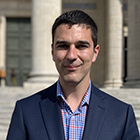
Ryan Cory-Wright
Ryan Cory-Wright
I was born in Switzerland but grew up in Auckland, New Zealand. I was drawn to Operations Research from early on, when my fantastic high-school math teacher, Johanna McHardy, wrote a problem on the board about how many ways New Zealand’s national rugby team could score 35 points, which turns out to be an integer programming problem. Being passionate about both math and its real-world applications, I studied Operations Research and Continuum Mechanics for my undergraduate degree at the University of Auckland.
In my first semester at Auckland, I was incredibly fortunate to have Jack Dunn as one of my TAs, who had just been admitted to MIT ORC and was joining in the fall. This put the idea in my head that doing a PhD overseas at a world-class university was a realistic possibility. Accordingly, when in my final year at Auckland I discovered I really enjoyed research, I decided to apply to six PhD programs in the US. After visiting MIT ORC and seeing its vibrant student culture, I knew immediately that it was the right place for me to be.
During my five years as a PhD student at the Operations Research Center, I was advised by Dimitris Bertsimas, who taught me to always aspire to conduct impactful research that simultaneously improves our knowledge of mathematics and the human condition. My thesis was on obtaining provably optimal and usually fast algorithms for problems where solutions need to interpretable, so they can easily be explained to humans. In particular, new formulations and algorithms for problems with sparsity and rank constraints. I was also fortunate to be exposed to a broad range of exciting real-world applications, from helping a Canadian bank make better sense of their consumer data via analytics and machine learning, to helping a fertilizer manufacturer allocate over one billion dollars of their own money to optimally decarbonize, to being part of a 25-person team at the start of the COVID-19 pandemic, that went from scratch to creating an analytics platform with tools for tracking, suppressing and fighting the virus in less than three months, that eventually helped with the roll-out of one of the COVID vaccines.
While the faculty at MIT are world-class, I believe that the most compelling reason to join MIT ORC is the other students. From my first visit at the open house, to my first happy hour and September retreat in Maine, I immediately felt that the ORC was a welcoming and vibrant place which was ideal for conducting research. It’s very easy to feel welcome in an environment with kind and smart people who are always happy to have lunch or grab coffee together, and get you unstuck whenever you are stuck on a homework or research problem, or just go for a run along the Charles river together. To this day, I count some of my fellow ORC alumni among my closest friends; I’ve even been to some of their weddings. One of them was even a coauthor on 4/5 chapters of my thesis, and is currently my closest collaborator. Classmates from the past couple of years have also been placed at the likes of Harvard, Georgia Tech, London Business School, USC, NYU, UBC, CMU, and Oxford (as well as top tech and finance companies), which means that if you attend MIT you will likely have as rich and deep a network as if you attended every single OR conference for the past ten years, just from going to the weekly happy hour (although you should still go to conferences!).
Boston is also a great and very livable city, with great running routes (like the Esplanade or Middlesex Fells), bike paths (like the Minuteman bike path and the Lower Neponset river trail), hikes (the White Mountains), ski fields (like Killington or Loon), breweries (like Lamplighter or Aeronaut), climbing gyms, and beaches nearby. This gives plenty of opportunities to unwind, or distract yourself from the research problem you’ve spent the past month thinking about. All in all, if I had to choose where to do my PhD again, I would definitely pick MIT ORC.
I currently have a one-year postdoctoral fellowship at the IBM T J. Watson Research Center, after which I will join Imperial College Business School as an Assistant Professor of Analytics and Operations, with an affiliation with Imperial College London’s exciting new Imperial-X initiative in artificial intelligence. I will be continuing my research agenda on developing algorithms with optimality guarantees for problems with interpretability constraints, and helping facilitate decarbonization via a judicious use of optimization. I’ll also be teaching classes on the likes of machine learning, analytics and optimization to undergraduate, masters and PhD students. I’m very much looking forward to keeping in touch with the faculty and Alumni I got to know during my time at MIT as I grow into the next phase of my career, and reuniting with some of them once a year at the INFORMS annual meeting.
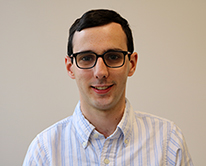
Arthur Delarue
Arthur Delarue
Getting a PhD at MIT was the right decision for me for several reasons. It means I am part of a rigorous academic program that challenges me every day to find creative solutions to important problems. As an interdepartmental graduate program, the ORC has a pretty unique status in the MIT archipelago, and it’s easy to grab a canoe and explore other fields by taking classes, going to talks or collaborating with researchers in economics, computer science, health care, finance, and many more. Most importantly, being a graduate student at the ORC means being part of a community of incredibly driven students with diverse backgrounds and interests, working on many different problems, and always happy to discuss a new idea or perspective. Finally, I love living in Cambridge: it’s a young, vibrant (and walkable!) city where there’s always something happening.
If you are thinking of coming to the ORC for graduate school, I would recommend choosing your advisor wisely. As a graduate student, your relationship with your advisor is by far the most important relationship in your professional life, and will be a huge influence in your development. The ORC has many world-class faculty working on a lot of different problems, so whatever your interests you will probably find an advisor who is excited about working with you. When you come to the open house and meet with faculty, try to picture yourself working with them regularly for a long period of time. And of course, most important of all, try to talk to as many of a particular advisor’s students as possible to get a sense of what working with them is like. Are they more hands-on? hands-off? do they prefer longer or shorter meetings? what is it like working on an industry collaboration? At the end of the day, ORC faculty care about the success of every single student and so it’s really a matter of finding the right fit for you.
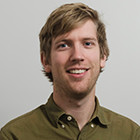
Iain Dunning
Iain Dunning
I studied engineering for my undergraduate degree at the University of Auckland in New Zealand. In my final year, I started thinking hard about what I wanted to do in the future, and as I had really enjoyed the research opportunities I had had to date, I decided to apply to PhD programs in operations research. After visiting the MIT ORC, I knew it was the best place for me.
My academic advisor was Professor Dimitris Bertsimas. My thesis focused on developing new algorithms and software for robust and adaptive optimization, and trying to develop an understanding of when and why these methods work best. I also worked on many side projects, including developing the JuMP modeling language, using machine learning to build better algorithms, participating in a variety of analytics projects, and creating two new classes. After graduation I'll be working as a research engineer at Google DeepMind, where I'll be solving cutting-edge problems in artificial intelligence.
I really enjoyed my time at the ORC. It was a lot of work, but the opportunities I had, the friendships I made, and the experiences I had made it all worthwhile. OR is not only at the heart of companies like Uber and Amazon, but it can also be found in hospitals, schools, and many other organizations. If you are interested in tackling problems with a combination of modeling, mathematics, and computing, then a PhD program in OR could be right for you—and there is no better place to study OR than at MIT.
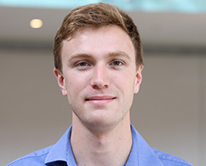
Samuel Gilmour
Samuel Gilmour
I completed my undergraduate degree in engineering and computer science at the University of Auckland (New Zealand) in 2017. It felt natural to apply to the ORC PhD program after reflecting on my favorite aspects of undergraduate study — an ML research project in healthcare, and enjoyable classes taken in operations research and optimization. The friendly atmosphere created by the ORC students during the open day was the cherry on top.
I graduated with my PhD in June 2023 after five years working with my co-advisors, Professors Patrick Jaillet and Nikos Trichakis. My thesis focused on modeling and optimizing allocation systems being operated by central authorities to distribute scarce resources — for example, a system that distributes public housing to residents who require it. I had the opportunity to work on both the theoretical (developing new mathematical models) and practical (analyzing real-life data sets).
The program took me on a journey from a fresh-faced graduate with little idea of how to do research, all the way to a much more confident scientist. My technical skills doubled (or tripled (or more)) thanks to the rigorous MIT coursework, and my advisors encouraged me to become independent by thinking about how to formulate and modify research questions. Along the way, the diverse student body from around the globe taught me many things about myself and the world.
To any prospective students: operations research is a field where you can scratch an itch for theoretical and practical research at the same time, and the ORC is truly an excellent place to do it.
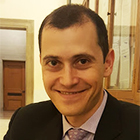
Dan Iancu
Dan Iancu
Basic background information on yourself, perhaps where you came from, former education, etc.
I was born in Romania. Throughout middle school and high school, I was very passionate about math and physics, but also debate, public speaking, and foreign languages. As I was enrolled in a class with a special focus on computer science, and given the realities of Romania's post-communist economy, I made the (rational) choice of a career in software engineering, and started college studying Electrical Engineering and Computer Science (EECS) at the Politehnica University of Bucharest.
After the first two years, I decided to try my luck and apply as a transfer student in the US. I transferred to Yale University, where I completed my Bachelor's degree in EECS, in 2004. My undergraduate thesis was on quantum computing; more precisely, quantum information and entanglement, which was a very young field at the time, on the interface of physics and computer science. But during my years at Yale, I also took quite a few courses in control theory and neural networks, and I was quite interested in AI. Thus, unsure of what I wanted to study for my Ph.D., I decided to head to Harvard for a Master's degree in Engineering Sciences, with more coursework in control and optimization, and a good dose of computer science and physics.
While at Harvard, I finally found out about the discipline of Operations Research (OR), and the program with the same name, at MIT. It seemed like a perfect fit for my evolving (but converging...) interests, combining tools and theory from a diverse set of areas to solve practical problems, which was something I had really wanted to do more of. I thus applied for Ph.D. admission both in the ORC, as well as in EECS (Area 1). Having been accepted in both, I chose OR due to its emphasis on applications and real-world problems, and the amazing student body.
What degree you received from MIT and when?
Ph.D. in Operations Research, in 2010.
Who your advisor was at MIT?
I was co-advised by Dimitris Bertsimas and Pablo Parrilo.
What was the research you performed while at MIT?
My research at MIT was quite theoretical. I was primarily interested in dynamic robust optimization. Problems of this type are typically quite degenerate, in that they admit multiple solutions, many of which do not satisfy the well-known Bellman optimality principle. My research was aimed at understanding the implications of this degeneracy, by finding classes of problems where simple policies had provably optimal (or near-optimal) performance. I did this for several classical problems arising in supply chain and revenue management.
Where are you currently working?
I am currently an Associate Professor of Operations, Information and Technology at Stanford University's Graduate School of Business.
What have you been doing since your OR degree?
Immediately after graduation, I had a one-year fellowship at the IBM T.J. Watson Research Center, in Business Analytics and Mathematical Sciences; afterwards, I started my appointment at Stanford.
Advice/guidance to students coming to the ORC – why the ORC from your perspective?
As I already hinted, the ORC is a fairly unique place due to its combination of breadth and depth. An incoming student can engage with amazing faculty from a very wide set of disciplines, and conduct research on questions ranging from deeply theoretical to very applied ones. Another big plus is the student body -- the ORC students are a very united group, and many of my fellow students have remained my friends to this day.
How did the ORC contribute to your development as a scientist and as a person?
As an ORC student, I had a significant degree of freedom to find my own path, which was particularly useful given my somewhat atypical background. I started with fairly theoretical questions and gradually moved to more applied ones, and I learned how to ask (and change...) questions, and how to collaborate on complex research projects. Perhaps more importantly though, it allowed me to establish a set of great friends, some of whom also became close research collaborators later in my career.
What is one memory about the ORC you carried with you?
The lunches at Rebecca's Cafe and the Kendall food court (both now defunct...), and the coffee breaks at Starbucks, in the Marriott (which still seems to be around...)
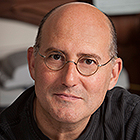
Ed Kaplan
Ed Kaplan
Basic background information on yourself, perhaps where you came from, former education, etc.
I was born in Canyon, Texas but grew up in Saskatoon, Saskatchewan, Canada. Before coming to MIT, I attended McGill University in Montreal, and received my BA with Honors in Urban and Economic Geography in 1977. My goal at that time was to become a city planner.
What degree you received from MIT and when?
I came to MIT in 1977 as a master’s student in the Department of Urban Studies and Planning. That summer I met Dick Larson, who was then co-director of the ORC. This changed my life. At Dick’s suggestion, I pursued two masters’ degrees – in city planning and in operations research – and received both in 1979. I then spent one year working at Dick’s company Public Systems Evaluation as a researcher before returning to MIT as a doctoral student in urban studies in 1980 with a new goal of using operations research to study public policy problems. Given the importance of empirical argumentation in the policy field, I took several statistics courses in the mathematics department. In the fall of 1981, Hermann Chernoff pointed out that with only a few additional courses plus a thesis, I could earn a master’s degree in mathematics (which was really a degree in statistics). I took this advice and detoured from PhD study to earn my third MIT master’s degree in 1982. This led Dick Larson to call me a “master of all trades but a doctor of none.” However, I returned to his doctoral studies, and graduated with a PhD in urban studies in 1984.
Who your advisor was at MIT?
Dick Larson was my ORC and urban studies master’s advisor, and was also my PhD supervisor. Hermann Chernoff was my advisor for my masters in mathematics. Arnold Barnett was also influential, while in urban studies my committee included joint ORC faculty member Joe Ferreira, and Lang Keyes, an expert in housing policy.
What was the research you performed while at MIT?
My master’s thesis in OR and urban studies addressed model-based evaluations of criminal justice programs. I used OR models to re-analyze data produced from some then-current experiments and observational studies in policing and detention/incarceration. My master’s thesis in the mathematics department examined mixture models for the duration of stay in a large psychiatric hospital. Finally, my PhD thesis took an operations research view of public housing. New applicants are the customers, housing units are the servers, the duration of residence is the service time, while the tenant selection policies utilized by the housing authority create the queueing discipline. Unlike most of the systems we studied in classes like stochastic processes or urban operations research, reneging is an important fact-of-life in public housing queues. I developed several descriptive models for various tenant selection policies that estimated waiting times for new applicants and also changes in the demographics of housing projects over time, and also showed how these models could be used to design policies to achieve various social goals. I also modeled and solved an interesting scheduling problem now known as the relocation problem that originated with the modernization and redevelopment of public housing projects. Like a very large game of musical chairs, during the course of redevelopment, all tenants must be housed in apartments of appropriate size (and with appropriate features, e.g. for the disabled). Redeveloping buildings could only proceed if all tenants could be relocated successfully, but successful relocation relied on available vacancies elsewhere on site. This creates an interesting resource-dependent scheduling problem where the availability of resources depends upon the schedule pursued. My PhD thesis resulted in several journal articles in both OR (e.g. Operations Research, Management Science) and housing (e.g. Journal of Housing, Planning and Design) journals, while the relocation problem sparked several extensions and generalizations published by others in the computer science literature.
Where are you currently working?
I am the William N. and Marie A. Beach Professor of Operations Research at the Yale School of Management, Professor of Public Health at the Yale School of Public Health, and Professor of Engineering at the Yale School of Engineering and Applied Science.
What have you been doing since your OR degree?
After leaving MIT, I spent one year as a Research Associate at Harvard’s Kennedy School and two years in the Management Science Department at the University of Massachusetts-Boston before joining Yale in 1987. I’m now in my 30th year on the Yale faculty, but I have also enjoyed sabbaticals as visiting professors in many wonderful programs including Stanford’s Graduate School of Business, Columbia’s Graduate School of Business, the MIT Sloan School, the Technion-Israel Institute of Technology, the Hebrew University of Jerusalem, and UC Berkeley’s Survey Research Center.
Shortly after arriving at Yale, I began applying operations research ideas to policy problems in HIV/AIDS. Best known among these is the model-based evaluation of the New Haven needle exchange program, where by combining data obtained from the tracking and HIV-testing needles returned to the program with newly-designed models inspired by both malaria epidemiology and queueing theory, we were able to conservatively estimate that the rate with which new HIV infections occurred was reduced by 33% on account of the program. I worked on many other problems in the HIV/AIDS realm, including a project with the CDC that forms the basis for how HIV incidence is estimated in the United States.
After the terror attacks of 9/11 and the anthrax letters that followed, I was contacted by government officials who sought advice evaluating our nation’s readiness to withstand bioterror attacks. This led to wonderful collaborations with Larry Wein (former MIT OR professor now at Stanford) in the realm of emergency preparedness and response to smallpox and anthrax attacks. I advised Canadian and Israeli officials on these topics as well.
Repeated visits to Israel, initially centering on HIV/AIDS issues (I produced the first estimate of HIV infection rates in Israel back in 1994) but later the threat of bioterrorism, sensitized me to the operational issues involved in countering more conventional terrorism. This led to studies of the effectiveness (or lack thereof) of tactics to counter suicide bombings. I then began a research program focused on operational aspects of intelligence collection and analysis. For example, how many undercover agents are needed (and how should they be deployed) to catch as many terrorists as possible? Queueing theory plays an important role in this work, and that research is ongoing.
One more area of study -- initially as a diversion but later as an area of real interest -- I have applied OR ideas to sports. One example is how to fill out the draw sheet in a March Madness office pool; another is how to estimate the number of hockey wins individual players “create” in the National Hockey League.
Finally, having been in the OR world for more than half of my life, I am now functioning as an advocate for our field by serving as president of INFORMS for 2016, though I much prefer the title Member-in-Chief!
Advice/guidance to students coming to the ORC – why the ORC from your perspective?
For me, the ORC was about surrounding oneself with what seemed like the smartest people in the world, and together adopting MIT’s famous “can-do” attitude. Often when presenting a new idea to someone, you will get the reaction “that won’t work because…” At the ORC, the reaction was more often “that’s interesting – why don’t you try it, and while you’re at it, think about this…” I loved the courses, my professors, and my fellow OR students. I can honestly say that the ORC changed my life – and certainly for the better.
My advice to students is to stay open with your interests, and recognize that the techniques you are learning have application and utility in areas you probably have not even thought about. Of course you need to narrow your focus to complete your research program, but try develop a habit for looking at problems you know little about, and ask yourself how you would approach them as operations problems.
Another small piece of advice – take some time to learn about the history of our field. There is a reason why operations researchers tend to be expert in optimization and probabilistic modeling, as opposed to, say, number theory and topology. A mathematician looking at OR without any understanding of the evolution of the field might find the subset of tools we focus on to be arbitrary and even odd. But OR came from studying operational processes so as to improve them. That by itself explains our focus on optimization and stochastic models.
Finally, try to focus on the front end of problem identification and problem/model formulation. Often time pressure will push you into solving someone else’s (e.g. a funded advisor’s!) problem. But at least in my experience, figuring out the right problem to work on is both harder but also more valuable than the mathematical work that follows (and I would argue this is just as true for theoretical as applied work).
How did the ORC contribute to your development as a scientist and as a person?
What can I add? The ORC made me who I am. It gave me the tools to succeed along with the confidence that I could.
What is one memory about the ORC you carried with you?
The ORC faculty and students just came across as the smartest people in the world to me. No matter what you are doing, if you surround yourself with this caliber of people, many of whom will become your friends – well, you will have a hard time failing. I also remember a lot of blackboards filled with equations, diagrams, graphs – this was a place where people worked very hard, but it did not feel like work. It felt more like ground zero for the discovery of new knowledge. The ORC to me was the most exciting place I’ve ever been.
Any additional information you feel might be of interest to others…………..
I remain very proud of my MIT education. It has served me better than I could ever have imagined, and essentially everything I have achieved in life can in some way be traced back to it. Also, the ORC gave me the ability to continue learning, albeit in less formal ways.
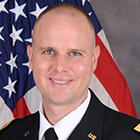
Christopher Marks
Christopher Marks
I am originally from San Diego, CA. In 1994 I reported to West Point, beginning both my undergraduate education in mechanical engineering and my career in the Army. In 2007, after 9 years as an Army Engineer officer and several deployments, I became an Army Operations Research/Systems Analyst (ORSA).
I received a Master of Science in Operations Research from MIT in 2009 and a Doctor of Philosophy in Operations Research in 2017. My master's advisor was Cynthia Barnhart and my doctoral advisor was Tauhid Zaman. They are both outstanding role models as well as academic advisors.
For my master's degree, I conducted research on using approximate dynamic programming to efficiently finding high-payoff routes for counter-IED patrols. For my doctoral research, I worked on finding efficient, and in some cases provably optimal methods for network search, with a focus on finding specific users in an online social network or classifying large sets of users in social networks. This work has interesting and exciting applications in identifying and countering online extremism and targeted sentiment analysis.
I am currently working again in the Army as an Operations Research/Systems Analysts. I'm currently assigned to US Southern Command in Doral, Florida. I lead a small team of analysts generally tasked to conduct data analyses to inform strategic and operational decisions in the command.
My advice to students coming to the ORC is to believe in your ability to solve hard problems. I think the work load and the research is hard for everybody, but you can do it if you apply yourself. The faculty and your fellow students are amazing resources when you are struggling with something, and the libraries can be very helpful as well. I recommend the ORC because it has a high standard of academic rigor, while still offering students a very broad set of research topics. I think this is one reason why the ORC faculty is so diverse--there are people working on so many different things.
My time in the ORC helped me realize what I am capable of accomplishing. I have learned to think in terms of what might be analytically possible, and I can start visualizing methods to achieve those possibilities.
It is hard to think of a single memory about the ORC--I have so many! It amuses me to consider the time when we were all studying so hard for qualification exams. We got together in different groups many times and worked into the evening. It was a funny way to get to know each other: everybody stuck on the same set of seemingly impossible study problems. It was also a good way to learn that we could all benefit from each other's talents.
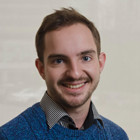
Sébastien Martin
Sébastien Martin
I was born and raised in France, and received a Bachelor and Master of Science in Applied Probability from École Polytechnique near Paris. During my five years as a PhD student at the Operations Research Center, I was co-advised by Dimitris Bertsimas (MIT Sloan) and Patrick Jaillet (MIT EECS).
I defended my thesis in June 2019, with the title "The edge of large-scale optimization in transportation and machine learning". I primary looked into the massive optimization problems that underpin complex transportation systems. In particular, I was very fortunate to collaborate with Boston Public Schools to work on school transportation. We introduced novel school bus routing and school start time selection algorithms and were able to remove dozens of buses from Boston streets, save millions of dollars every year, and have a major policy impact. More broadly, my research mainly focused on in the scalability challenges of transportation applications, and the potential impact of algorithms in the real world.
My time in the ORC was both enriching and enjoyable. First and foremost, the ORC is a welcoming community, and this is particularly important when coming from a foreign country. I think this may be one of the main reasons why the ORC is one of the foremost programs in Operations Research. The ease of collaborations with other students and faculty and the constant support provided throughout this adventure really makes the ORC a unique environment. And on top of this, you have access to brilliant faculty as well as the vibrant MIT environment and its extraordinary facilities!
I spent five important years of my life in the ORC, and this time was positive enough to convince me to begin an academic career, an option I was not considering before. On the more personal side, I also think it allowed me to become a more caring person. Maybe this was because of my participation in a student support group, or many research interactions with the US public schools system and its many challenges.
I will remember many little things from my time in the ORC that made all the difference, for example the many ORC social gathering organized at my apartment! Moving forward, have happily accepted a position of assistant professor in the Managerial Economics, Decision Sciences & Operations Department, at the Kellogg School of Management, Northwestern University, starting in Fall 2020. In the mean time I will be in New York City a post-doctoral researcher at Lyft, a transportation company. I am very excited about these next steps, and definitely have to thank the ORC and my supportive advisors for making this possible.
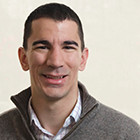
Velibor Misic
Velibor Misic
Tell us about yourself.
I am originally from Belgrade, Serbia, and I completed my bachelor’s and master’s degrees at the University of Toronto, both in industrial engineering.
What degree did you receive from MIT and when?
I received my PhD in operations research (OR) in 2016.
Who was your advisor at MIT? What kind of research did you do?
My advisor was Professor Dimitris Bertsimas, and we worked together on two broad research areas. The first was on how to solve large-scale Markov decision processes using a new type of linear optimization formulation of the problem. The second was on how to make effective decisions in the presence of customers with product preferences—in particular, how to make strategic product line decisions under uncertainty about the underlying market, and how to make tactical product assortment decisions from limited data.
Where will you be going after graduation? What will you be doing? Why does it excite you to do this work?
I will be joining the Decisions, Operations and Technology Management (DOTM) group at the Anderson School of Management at the University of California Los Angeles as an assistant professor. I will be doing research, as well as teaching courses in operations management and analytics to MBA and PhD students.
I am really excited by this because I love research—thinking creatively about interesting and important problems is a lot of fun. There is something incredibly exhilarating when you discover a new theoretical result, or your simulations finish and some amazing insight is staring you in the face, or even when you sit down with a blank LaTeX document and turn it into a complete paper.
I also really enjoy teaching. At MIT, I have been a teaching assistant (TA) for The Analytics Edge class, in both its regular and executive MBA formats. The course teaches students how to use data to build powerful models for predicting things you wouldn’t think could be predicted—for example, how much a wine from Bordeaux will sell for at an auction, or how U.S. Supreme Court justices will vote on a case. I found it incredibly rewarding to be a TA for this course because it is a way to have an impact; each student who masters the material is someone who will take that knowledge and do something exciting and impactful with it tomorrow.
Why should prospective students come to the ORC?
The ORC is simply the best place to obtain a graduate education in OR. The faculty are leaders in the field and are extremely devoted to helping their students succeed and develop into the best researchers they can be. The students here are bright, highly motivated individuals, but as a group, they form a tight-knit, collegial, friendly community: There is an intramural soccer team; we go out for lunch together; we celebrate birthdays and housewarmings together, and so on. MIT, as an institution, is an energizing place to be—the people you meet around campus are talented and inspiring. Last but not least, the Boston/Cambridge area is wonderful—during my time here, I’ve really enjoyed exploring areas like Harvard Square and Brookline, and just like MIT, the attractions around MIT are first rate: For example, the best ice cream I have ever had in my life has been at Toscanini in Central Square.
What advice would you give to prospective students to the ORC?
Before you apply, do your research: Look up faculty who seem interesting to you, print out a couple of their papers, and read them in the summer before you apply. This will help you get a sense of what people are working on and whether or not you are interested in a particular area. Although it’s perfectly fine to be unsure about what you would be interested to work on, it always helps to have an initial idea.
How did the ORC contribute to your development as a scientist and as a person?
The only way to become a good researcher is to do lots of research. My graduate training at the ORC immersed me in research, and in all aspects of research. One of the most important skills that I have gained—and that I continue to develop—is choosing the right problem. Being able to solve a problem—analyze it theoretically, plan out and execute simulations, and so on—is one thing, but as an independent researcher, you have to be able to formulate the problem in the first place.
What is one memory about the ORC that you will carry with you?
There are many—one is the ORC retreat, which happens every year in late September. We rent out a house near a lake and spend the weekend together, enjoying good food, going canoeing/kayaking, playing football or soccer, and just having fun!
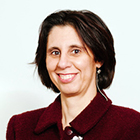
Gina Mourtzinou
Gina Mourtzinou
I was born and raised in Athens, Greece. I received my Diploma (a 5-year degree) from the Electrical and Computer Engineering School of the National University of Athens, Greece in June 1991. Just before I graduated I got a phone call from Prof. Bertsimas inviting me to join the ORC. And I did arrive in Boston in August 1991 and never left :-)
I graduated from MIT in 1995 with a Ph.D. from the ORC. My research dealt with queueing networks, developing distributional law approaches. I published a number of papers and I got the Second Place in the INFORMS George Nicholson Student Paper Competition in 1996 (a year before my husband - a LIDS student - got the exact same prize).
I am currently the CEO of Dynamic Ideas Financial, a financial technology company and a SEC registered internet advisor and a partner at Alpha Dynamics LLC, a registered independent advisor.
After graduating from MIT, I stayed one year as a post-doc and worked on Financial Engineering. At the time I was consulting for asset management companies and in 1999 I co-founded (with Dimitris) Dynamic Ideas and then sold the assets of the company to Amex. From 2002-2010 I was a member of the quantitative asset management group of Amex and then Ameriprise/RiverSource. I left in 2010, when I was a senior portfolio manager, and started Dynamic Ideas Financial and Alpha Dynamics.
The ORC (and before that the Engineering school) uniquely prepares students not only to understand the beautiful theory of optimization and stochastic systems but also to engage in real world applications. I have been using all the tools that I learned from ORC every day in my work, and often times in my family life. I love the ORC approach that every challenge is an opportunity for a well-designed and executed solution.
My memory of the ORC is that of a warm, multicultural, inclusive place. I have friends, older and younger, who studied at MIT and remember it as a hard place but the ORC was really a fun, friendly place to be. Our first Thanksgiving in the US we had no friends or family outside the people we have met at MIT and one of my classmates from the center, Alan Kaufman, invited all of us to spend the day with his family. It was such a kind act and it represented the spirit of the ORC community.
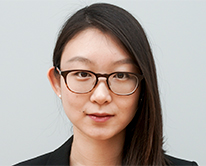
Yumeng (Rainy) Niu
Yumeng (Rainy) Niu
I was born and raised in China, and I received my Bachelor of Science degree from Cornell University in Operations Research and Information Engineering. After graduating from college, I was working as an applied OR consultant at McKinsey for three years, based in Boston. I graduated with my SM degree at the ORC in 2022. While at the ORC, I had the honor to work with Professor Robert Freund and Professor Duncan Simester, focusing on mixed-integer optimization modeling applied to fairness in marketing problems.
As someone who has found her passion in OR since freshman year in college, I knew that I wanted to come back for an advanced degree in OR, even though I chose industry right after graduation. MIT ORC has always been the dream program for me. In addition to being a top OR program in NA, ORC also has the right balance between cutting-edge research expanding the frontier of knowledge, while still aiming to create tangible impacts in the real world. More importantly, the SM program was such a unique 2-year program offered by ORC, where students can get a taste of conducting rigorous research in the limited timeframe. For many of my fellow SM students, this program introduced them to the academic world, and they decided to continue with the PhD program at ORC. I highly recommend this program to anyone who is interested in OR, but not sure about committing for a full doctoral degree. Personally, I was able to take the doctoral level courses during the my two years at ORC. This education enabled me to find job positions that really apply the advanced technologies in OR, building advance mixed-integer optimization models for logistic applications at Shopify.
Another aspect that really made ORC a unique place for me was the people. It really is a family-like environment, and I can't stress enough how heart-warming this community has been. During my two years here, I had the opportunity to serve as an INFORMS officer (which is essentially some kind of social-organizing committee for the ORC). This experience allowed me to understand how much effort the ORC put in to foster the close and welcoming community for everyone. Everything from the ORC Open House, to holiday dinners, to annual student retreat, and countless happy hours and festive celebrations. It was such a fun experience helping to plan the events behind the scene! Just like me, you would almost certainly meet some life-long friends here, in this highly-diverse community.
Again, my two years at MIT ORC has been nothing but amazing. I highly recommend perspective students to come the Open House, and talk to as many current students and faculties as possible. They can certainly share they experiences at the ORC, and help you understand the research and student life here.
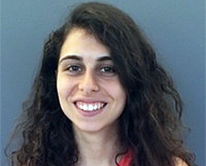
Agni Orfanoudaki
Agni Orfanoudaki
Studying at the Operations Research Center has been one of the best decisions of my life! It is a truly unique environment that combines high quality faculty with intelligent and aspiring young researchers that work jointly to tackle some of the most important problems in the world. In the ORC, I found people dedicated to a wide range of fields, from transportation, security, medicine, finance to airspace engineering. Diversity does not come only due to the breadth of applications encountered in research. The members of our community come from very different academic backgrounds, nationalities and industry experiences, sharing their passion for learning and creating new solutions for real-world challenges. As a student at the ORC, you will have the chance to attend courses from any department of MIT that you might be interested in. However, I realized over the past years that it was the vibrant and collaborative environment of the Center that benefited me the most.
Settling into Cambridge as a foreign student, proved easier than what I originally imagined. The city is very international, full of young and brilliant students from all over the world. The historic city center has so much to offer that I am still exploring after living here for three years. Sports, arts, and social activities are also part of our everyday life. Winter might seem long, but there are various opportunities to go for throughout the year!
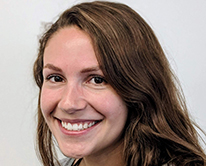
Elisabeth Paulson
Elisabeth Paulson
I grew up in central Pennsylvania, and attended Penn State University for my undergraduate and masters studies in mathematics and statistics. I enjoyed math throughout high school and college, but knew that I didn’t want to pursue theoretical math. I didn’t hear about Operations Research until my third year of undergrad when I began working with a math professor with a background in OR. To this day I am extremely grateful for this mentor, who introduced me to a field that would allow me to apply my love of math to complex problems in domains that I was interested in.
After graduating with my master’s degree, I took a job at Booz Allen Hamilton working as a data scientist on a healthcare project. After only a couple months at this job, I missed research and an academic environment, and immediately applied to PhD programs.
The MIT and the ORC of course have amazing faculty and an unparalleled learning environment, but the student population was the main reason why I chose the ORC. The students at the ORC are extremely bright, collaborative, social, and engaging. I graduated from the ORC not only with a PhD, but also with a group of lifelong friends and collaborators.
At the ORC I was co-advised by Retsef Levi and Georgia Perakis, who taught me to always strive for positive, real-world impact. With them, I worked on problems related to food policy and access to fresh food. This research agenda required a large set of analytical tools (causal inference, mathematical modeling, optimization, etc.), and led to many partnerships with non-profits and public entities. Working on real-world, impactful problems with deeply passionate partners kept me motivated throughout the PhD, and continues to be my research goal going forward.
I am currently a postdoctoral fellow at the Stanford Immigration Policy Lab, where I work on optimizing programs to assist the integration of newly arriving refugees in their host countries. In this role, I am able to apply the skills and research philosophy that I learned at MIT to a very new application setting. After one year in this position, I will join the faculty of Harvard Business School as an Assistant Professor. I look forward to continuing my research at the intersection of analytics and public policy, and to becoming a teacher. The mentorship that I received from my advisors, tools that I honed, and relationships that I built while a student at the ORC have led me to this exciting next chapter, and for that I am forever grateful.
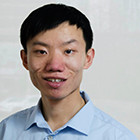
Peng Shi
Peng Shi
I grew up in China and Canada, and studied at Duke University for my bachelor’s degree in mathematics and computer science. I obtained a PhD in operations research from MIT ORC in June 2016, under the guidance of Professor Itai Ashlagi, my academic advisor.
My PhD research was on prediction and optimization in school choice. In a school choice system, such as the one implemented in Boston, each student is given a list of public schools based on home location and ranks the available options in his/her order of preference. Schools also give priorities to various types of students. A centralized algorithm determines the assignment, while using the priorities and lottery numbers to break ties. My research was on optimizing these assignment systems so that students have equitable chances to go to the schools they want, while the city's school busing cost is controlled. My research was applied to real data in Boston, and the Boston Public Schools implemented one of the plans I proposed in 2014. Various parts of my research were published in Interfaces, an operations research and management science journal.
After graduating, I will pursue a one-year postdoc at Microsoft Research New England, before taking a tenure-track faculty position at the Marshall School of Business at the University of Southern California. I plan to continue my research agenda in developing quantitative methodologies that benefit society, with a focus on optimization in matching markets. I will also be teaching classes in operations management. What excites me about this work is the opportunity to play with interesting mathematics while thinking about real-world problems, as well as the opportunity to interact with students.
I encourage prospective students to think about the years at graduate school not only as a time for intellectual and career development, but also as an opportunity to develop deep friendships and grow as a person holistically. In my five years at MIT, the friendships that I developed are what will remain with me the longest and will always be cherished.
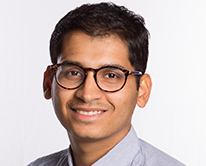
Divya Singhvi
Divya Singhvi
I chose the MIT ORC mainly because of its tight knit community and its unparalleled academic rigor. The research interests of the faculty are very diverse, which means that students work on very different problems. This leads to a very dynamic and engaging environment at the Center. The student population is also very diverse. No matter where you are from, I am certain you will feel at home at the ORC!
The graduate student community at MIT is very active and organizes various social events across campus. Being in Boston has its own charm. Boston is a very walkable city and has plenty to offer. You can explore various cuisines and local events throughout the year.
Having spent four years on the MIT campus, I can confidently say that my time here has been nothing short of amazing. Academically, I have learnt from world-class faculty members, and personally, I have made friends for life. For prospective students who are deciding to come to the ORC for graduate school, I think I would highly recommend attending the ORC Open House and talking to as many faculty members and students as you can. These interactions will help you get a better picture of what life and research is like at the ORC!
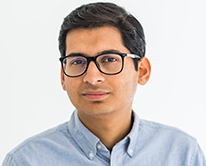
Somya Singhvi
Somya Singhvi
MIT OR Center’s focus on doing research that has a positive impact in practice is unparalleled. It provides a unique opportunity to work on problems that are driven by collaborations with industry partners and government agencies. No matter what your interests are, you will always find professors who would be interested in working on them. ORC has an equally strong and diverse student group. Given ORC's interdepartmental structure, students work on all kinds of problems and you will never run out of interesting lunch conversations!
I have lived in the graduate housing (Ashdown House) since my first year and I would definitely recommend it to incoming students. The graduate community at MIT is very close knit and there are events happening almost every day. Weekly coffee hours at both Ashdown and Sid-Pack are events to watch out for if you enjoy evening coffee with friends!
As a prospective student, you should definitely try to attend the Open House. It is a wonderful opportunity to know more about professors both by meeting them and talking to their current students. I would also recommend you to keep an open mind about the research projects in the first year. Although you may not start with a project that completely aligns with your interests, there are plenty of opportunities to modify it in later years.
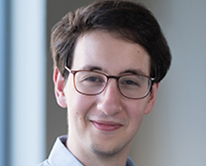
Omar Skali Lami
Omar Skali Lami
Basic background information on yourself, perhaps where you came from, former education, etc.
I was born and raised in Casablanca, Morocco, and then moved to Paris, France, after high school to study Mathematics, Physics, and Computer Science at Lycée Louis Le Grand. After that, I received a Bachelor and Master of Science in Applied Mathematics from École Centrale Paris.
What degree you received from MIT and when
I received two degrees from MIT: a Master of Business Analytics (MBAn) in 2017 and a Doctor of Philosophy (Ph.D.) in Operations Research in 2022.
Who your advisor was at MIT
Prof. Georgia Perakis advised me throughout my almost four years of Ph.D. at MIT. During the MBAn program, I also worked with Prof. Dimitris Bertsimas and kept collaborating with him on some projects during the Ph.D.
What was the research you did while at MIT
My research at MIT was at the intersection of modern optimization with statistics and machine learning. I worked on predictive and prescriptive analytics, Bayesian statistics, and optimization under uncertainty, with applications in healthcare, pricing and revenue management, and supply chain management.
Where are you working now
I am now a Senior Data Scientist at QuantumBlack, the AI arm of McKinsey & Company, where I develop novel machine learning assets for the firm and help clients use advanced analytics and optimization to make transformative and sustainable performance improvements.
What have you been up to since your OR degree
I only left MIT a couple of weeks ago. I enjoyed some well-deserved vacations and kept working on advancing research and papers from my Ph.D. while transitioning into my new role.
Why the ORC from your perspective
There are many reasons to choose the ORC for graduate school. However, here are a few that made my experience truly unique:
1. Exceptional Talents. The professors and the students are among the best, if not the best, you can find. You will learn so much from them, and they will constantly push you to better yourself throughout your journey at the ORC.
2. Exceptional Community. The ORC enjoys a vibrant and supportive community. The generosity and collegiality of its people, from the staff to the faculty to the students, make the ORC what it is.
3. Exceptional Research. At the ORC, people do high-quality research that can change the world. There are opportunities to explore whatever you want to do in research in terms of theory, methodologies, applications, and beyond.
Advice/guidance to students coming to the ORC
My main advice to people joining the ORC:
Keep an open mind. There is so much you know, but also so much you don’t know. Be humble. Explore, discover, and learn new things as much as you can and evolve constantly.
Strive for impact. From theoretical OR to finance to education to healthcare, whatever you do, make sure it has an actual, positive impact and strive to improve society through your research.
Enjoy the ride! Besides a few exceptions, you go to graduate school only once in your life. Enjoy the experience.
How did the ORC contribute to your development as a scientist and as a person?
The ORC changed how I view research, mathematics, and problem-solving. Before coming to MIT, I considered research problems as this solo challenge you need to solve by yourself, and once it is done, you move on to the next challenge. The ORC taught me that it is a team effort and that multidimensional collaboration is key to success and achieving true impact.
What is the one memory about the ORC you will carry with you?
The endless discussions in E40 to distract you from the work you have to do.
Honorable mention to the many lunch breaks in E62 or around Kendall Square to catch up with your friends and that never fail to make your day better.
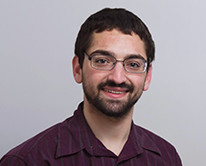
Brad Sturt
Brad Sturt
When I came to the ORC open house, I immediately felt at home. I longed for a graduate program to work on important, multidisciplinary problems in society, but also on a day-to-day basis incorporating my love of solving challenging theoretical problems I found in my engineering undergraduate studies. Operations Research was exactly what I was looking for.
The ORC is simply an incredible place to be a graduate student. There is a strong sense of community, and the students and faculty are incredibly helpful and welcoming. One of my favorite parts of the ORC is the desk space. New and senior students have desks interspersed, which facilitated so many valuable conversations and has enabled me to learn so much from those around me.

Yuchen Wang
Yuchen Wang
After studying four years in China, I decided to come to MIT ORC to pursue a Ph.D. degree. Comparing to other top OR programs, the MIT Operations Reserach Center has lots of advantages. First, research collaboration is greatly encouraged. You can always hear students discussing their research projects in the office. There are also numerous social events in the center to help students know each other better. Second, because students are working with faculty from different departments, you can know lots of exciting research currently happening in different areas, not only in operations research but also in management science, statistics, machine learning, healthcare, finance. And you can also participate in them if you want. Third, students are encouraged to work with their advisor starting from the first year. The advisor will give you lots of great guidance and suggestion so you don’t need to be afraid of losing your direction when you come here. Finally, students are required to have hands-on experience, for example, an internship in the industry. This can help you know more about the world so you can make a better decision whether to stay in academia. About half ORC graduates stay in academia and the rest people go to industry.
Boston/Cambridge is also the best place to live and study. It’s a perfect combination of working and living. On weekdays, there is strong academic atmosphere around here so you can focus on your research and study. On weekends, you only need to take 10 minutes subway then you will arrive the downtown of Boston and enjoy the city life there. There are also lots of museums to visit there. You will love this great city when you come here.
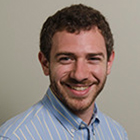
Alexander Weinstein
Alexander Weinstein
I completed my PhD in Operations Research from MIT in 2017. My thesis, entitled “From Data to Decisions in Healthcare: An Optimization Perspective,” was supervised by Professor Dimitris Bertsimas. My research explored applications of optimization and machine learning to data-driven problems in the design and analysis of clinical trials and personalized diabetes management. After graduating in June 2017, I moved to Seattle to work as a Data Scientist at Zillow Group, a platform for real estate and home-related brands.
I was born and raised in the Boston area so was close to home and family during my time at MIT. I received my B.A. in Economics and American Studies from Yale University in 2009. Before I came to MIT, I worked for two years in a quantitative research center at Brigham and Women’s Hospital in Boston.
When I decided to apply to grad school, I thought I wanted to study public policy because of my interest in areas like education, healthcare, and the environment. I soon realized that by pursuing a PhD in a methods-oriented field, I could potentially have an impact in all of these areas. Ultimately, I was deciding between an economics program and the ORC (the only OR program I had applied to). Four factors made my decision easy and turned out to have a huge positive influence on my experience in the program.
First, as an engineering field, OR has a prescriptive focus (i.e. modeling for the purpose of making actual decisions) unlike the largely descriptive focus of economics. Through my research and classes at the ORC, I was able to work on problems in fields as diverse as healthcare, education, revenue management, sports, and inventory management. I was constantly amazed at the breadth of problems that ORC students and faculty work on and the creativity with which they approach these problems.
Second, the track record of the ORC and the quality of its faculty and students is superior to other programs in its field. Any time you can go to the “best ________ of its kind,” that’s a hard thing to turn down. I truly believe the ORC graduate program is the cream of the crop in the field of OR. This fact leads to both a great student experience while in the program and amazing career opportunities after graduating – whether in academia or industry.
Third, and most important, the ORC student community was such a warm, welcoming place. The spirit was collaborative and fun, not competitive like so many other graduate programs. Having supportive classmates made a huge difference while taking challenging coursework during my first two years and navigating the ups and downs of a five-year PhD program.
Finally, as a native Bostonian I am certainly biased, but I think Boston/Cambridge is an amazing place to live. The concentration of so many graduate students and young professionals from all of the universities and important industries in the area makes for a culture full of interesting people to meet and fun things to do. Boston has everything you would want in a city while still being small enough to walk around and feel like you could see everything in one day.
As I look back on my five years at the ORC, the PhD program truly exceeded my expectations. Not only was I able to pursue challenging coursework and an impactful program of research in healthcare analytics leading to my thesis, but I also had many diverse experiences that I had not anticipated. To name a few:
• I engaged directly with doctors via a poster presentation on personalized medicine at the American Diabetes Association annual meeting in New Orleans.
• I analyzed cost-saving measures as a summer research scientist on Amazon's fulfillment optimization team.
• As part of a 2-year industry partnership with a large, global consulting firm, I presented regularly to senior executives and the firm's financial planning team, and took a leading role on our internal team of 3 PhD students and 1 undergrad to meet client objectives and timelines for delivery.
• I presented at academic conferences in Seattle, Nashville, New Orleans, Philadelphia, and Fontainebleau, France!
• I served as a teaching assistant for multiple MBA and Executive MBA courses in supply chain planning and business analytics. I tutored Executive MBA students in operations and analytics, including advising on projects with direct impact for their businesses.
• I administered a MITx business analytics MOOC with over 4,000 active students. I learned how to write code for data analysis in Matlab, R, Julia, Perl, and Python - something I had never done before - and then developed content for and taught a session on data wrangling in R for the ORC’s student-led software tools course.
• I served as a peer counselor for my department and leader of the department’s student social group.
• I played on the ORC’s intramural soccer and Ultimate Frisbee teams.
• Favorite memory: Attending the ORC retreat each September, an annual tradition in which the whole ORC takes a weekend retreat to Maine.
What a five years it was! As I begin my next career chapter, I take great comfort in knowing how well my experience at the ORC has prepared me for whatever comes next.
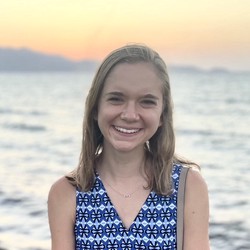
Holly Wiberg
Holly Wiberg
I was drawn to Operations Research from early on, starting with my undergraduate studies at Cornell University. While working at a healthcare technology company for a year post-grad, I developed a passion for healthcare and decided to go back to school with a goal of applying Operations Research to this area. When applying to schools, I was excited by the ORC's breadth of healthcare work, from personalized medicine to operational challenges. The ORC, and MIT more broadly, turned out to be the perfect place for me to pursue these interests.
I worked with Prof. Dimitris Bertsimas, and my research focused on the intersection of optimization, machine learning, and healthcare. I enjoyed the opportunity to get involved in research from day one at the ORC: from my first year, I had the opportunity to interact with clinicians and healthcare researchers which has given me an interdisciplinary perspective. MIT also has an ideal location for medical work due to its proximity to major hospital systems and the biotech community.
Beyond research, the vibrant community and research opportunities sold me on attending the Operations Research Center for my PhD. From my first visit to the ORC as a prospective student, I was impressed by the camaraderie and mentorship found throughout the center. This was consistent through my five years at the ORC, even with 2 years spent in COVID. There are always other students eager to give advice on courses, study together for midterms, or just catch up over lunch or a coffee break (or Zoom!). Students come from diverse nationalities, academic backgrounds, and industry experiences, but there is a shared passion for learning and tackling challenging problems. This fosters a dynamic and hard-working environment that made me excited to go into the ORC every morning.
After graduation, I am joining Carnegie Mellon University as an Assistant Professor of Operations Research and Public Policy. My years at the ORC both deepened and broadened my interest in healthcare research, and I am excited to continue this thread as a faculty member. The ORC's unique position between Sloan and Engineering also offers the opportunity to experience different research environments and to teach across different levels (PhD, MBA, undergrad, etc.), which was hugely helpful in nailing down my post-grad interests.
Between the student community, academic environment, and impactful research, I could not be happier to have ended up in the Operations Research Center at MIT.
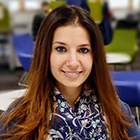
Nataly Youssef
Nataly Youssef
Tell us about yourself.
I am originally from Lebanon. Coming from a humble background, education is what carried me through an exciting journey. After my bachelor in Mechanical Engineering at the Lebanese American University, I took my very first flight to the US on a Fulbright scholarship to pursue a Master's in Industrial and Systems Engineering at Texas A&M University. I fell in love with the field of optimization and worked on clique relaxation in social networks and started delving into stochastic optimization and decision making under risk. After completing my first year of the PhD program at Texas A&M, I was encouraged to apply to the MIT Operations Research Center (ORC) by a dear mentor of mine at Texas A&M. I still remember vividly the day I received the acceptance letter from MIT. What a happy day! I was over the moon at the Open House and I knew right that day that the ORC would be the best place for me.
What degree you received from MIT and when?
I came to MIT in the Fall of 2011 and defended my PhD in October 2015.
Who was your advisor at MIT?
I was incredibly lucky to work with Dimitris Bertsimas. I have enjoyed both our theoretical discussions as well as his mission to make a positive impact on the world. I have learned a lot from my collaboration with Chaithanya Bandi, now an assistant professor at Kellogg, Northwestern University. I was also very much inspired by my committee members Georgia Perakis and David Gamarnik.
What was the research you performed while at MIT?
My main interest was around understanding and optimizing the performance of large-scale supply chain and queueing networks, especially in uncertain environments. Instead of modeling uncertainty in a probabilistic manner, I employed to concept of the probability limit laws and modeled the uncertainty as a geometric set. This allowed me to use tractable robust optimization algorithms to produce accurate approximations relative to probabilistic estimates. Bringing together two areas of Operations Research together in my research was extremely rewarding.
I also worked on a side project with the MIT Office of Sponsored Programs (OSP). OSP assists the MIT research community in securing sponsored research funding, with only 16 contract administrators (CAs) reviewing about 2,500 proposals and managing about 1,000 awards worth $1.5 billion every year. OSP's goal was to minimize their workload imbalance between their CAs, maximize fairness, and increase their ability to deal with sponsor deadlines and emergencies effectively. I helped develop a resource allocation optimization algorithm, followed by an online assignment optimization, which helped reduced the work imbalance by 30%. Along with their IT team, we embedded the optimization algorithms within their software, and the technology has been managing the flow of proposals within OSP since May 2014.
For me, the opportunity to lead this project from conception to implementation has given me crucial insights into the challenges of bridging the gap between the development of cutting-edge analytics technology and bringing those technologies to bear on the creation of value for businesses.
What have you been doing since your OR degree?
Since my PhD defense, I have been riding on an exciting journey to bridge my OR research and knowledge with solving real-life problems. It truly gives me an instant gratification to see how OR can make a practical difference.
I have co-founded RECLAIM (MyA health), an MIT spinoff whose mission is to help individuals take control of their healthcare finances and save on their out-of-pocket expenses. I am currently serving as its CEO and I am leading its technology team, bridging large-scale data analytics with the development of a consumer-friendly application.
I am also a Partner at P2 Analytics, a boutique company offering customized analytics software to large businesses. Among the exciting projects I have worked on is a software tool for a cardiac department at a large US hospital to optimize their patient flow from the operating room all the way to their discharge and minimize patient delays.
Why the ORC from your perspective? How did the ORC contribute to your development as a scientist and as a person?
I cannot recommend the ORC enough. And the three main reasons are a) tight-knit community, b) impactful research, and c) link to the business school.
a) Tight-Knit Community:
At the ORC, you will get the chance to meet many colleagues, not only those who are in your cohort. For one, the open layout of the office space allows you to meet more senior/junior MS and PhD students with a wide research, intellectual, and extra-curricular interests. Thanks to the AMAZING retreat in September, you will get to know almost everyone right off the bat! These retreats occur every year up in a large lake house in Maine and they present really unique opportunities to meet everyone. I have confided with many of my more senior peers, whom I am still very close to, well beyond graduation! One of my closest friendships were a product of my ORC experience!
b) Impactful Research:
One reason that initially interested me about the ORC is that students were encouraged to get started on research right from the very first semester. By the time you are done with your coursework (end of second year mostly), you have a very good chance at having already submitted a publication for review! Also, I was able to have both a theoretical project as well as a more applied project simultaneously, which helped me understand better where I thrived better. This, I believe, is important to figure out where you find yourself beyond grad school, and whether an academic career is what fulfills your ambitions, or a career in industry.
c) Link to Business:
Unlike any other engineering/statistics/applied mathematics program, the ORC gives a chance for its students to interact closely with the Sloan School of Management. I was a teaching assistant for executive MBAs for two years in a row, and this experience has allowed me to connect to more than 200 executives from a host of industries and enlarge my network of connections. Moreover, it gave me the opportunity to see how analytics and optimization can be applied practically to solve the very problems that keep these executives up at night. This experience has been instrumental in defining the direction that my career has taken after the ORC.
What is one memory about the ORC you carried with you?
I have two memories that jump to mind: The first one is my very first ORC retreat where I met all the ORC'ers at the time over barbecues, beer, karaoke, zip-lining, and a host of other activities. Those colleagues are my friends and have become professors at Northwestern, Georgia Tech, Michigan Ann Arbor, Columbia, NYU, Cornell, UCLA, USC, Harvard, and others who are now working at Google, Facebook, Amazon, Zillow, Uber, or at tech startups. The second memory that comes to mind is the day of my defense, surrounded by my friends and my parents who flew across the world and took me by surprise to share in the excitement of the day. I still remember the pride in their eyes when Dimitris, Georgia and David (my committee members) announced that I had passed my PhD defense. Incredible emotions that sealed 4 incredible years at the ORC.
Any additional information you feel might be of interest to others?
Do not hesitate to reach other ORC'ers, including alumni, for help, whether it is regarding choosing a PhD advisor, preparing for quals, or seeking career advice. You will only encounter fellow ORC'ers who will jump at the occasion of helping you out in any way they can.
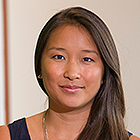
Jessica Zhu
Jessica Zhu
Basic background information on yourself, perhaps where you came from, former education, etc.
I was born and raised in the United States, but my parents are Chinese immigrants. I got my Bachelor's degree in Operations Research and Chinese from the United States Military Academy at West Point. I was then commissioned in the US Army as a Military Intelligence Officer. However, I was lucky enough to get a Military Fellowship at Lincoln Laboratories which gave me the opportunity to come to MIT as my first "assignment".
What degree you received from MIT and when
SM in Operations Research 2019
Who your advisor was at MIT
I was co-advised by Professor Karen Zheng and Dr. Lin Li from Lincoln Laboratories.
What was the research you did while at MIT
I conducted research on food safety risk analysis, analyzing supply chain and certification inspections for potential predictors of food safety violations. In addition, I worked on detecting human trafficking ads and keywords from escort service advertisements. These projects required extensive data analysis and relied on various interpretable modeling techniques.
Where are you working now
I am working as a Military Intelligence Officer in the Army and will be stationed in Colorado Springs come January after 4 months of additional training.
Advice/guidance to students coming to the ORC – why the ORC from your perspective
The ORC is a very close community. Everyone is willing to help and share their work with you. Most of my best friends from my time here are from the ORC. In addition, everyone in the ORC does fantastic research with very interesting and useful applications.
How did the ORC contribute to your development as a scientist and as a person?
The ORC really pushed the limits of my academic capacity. I continue to be amazed by the intellect that surrounds me everyday. The ORC inspired me to dig deeper, think harder, and explore new things in my research and in life.
What is the one memory about the ORC you will carry with you?
There are just way too many memories with the people here, whether it was planning fun events with the INFORMs officer, going out with the department after finals, or even getting help from some fantastic T.A.'s who also happened to be department mates (usually).

